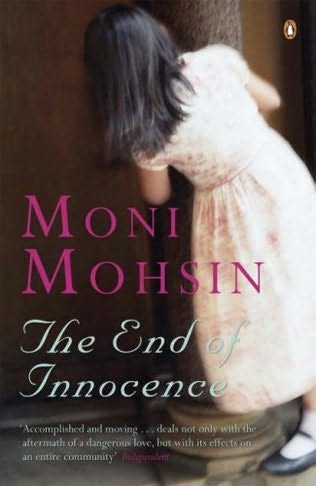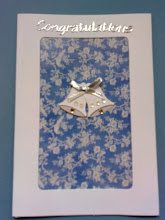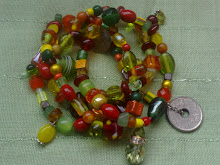I had never heard of this writer before, but like to try books by Pakistani authors in the hope there is something that I can relate to or recognise in them. Plus I like books where the blurb suggests that there is a big juicy secret along the way.
This book is set in the lusciously green and prosperous Pakistani village of Sabzbagh during the Indo-Pak war of 1971. It tells the story of a wealthy, liberal, educated family and the villagers they live amongst. The main character is 9-year old Laila and the story unfolds from her innocent point of view.
The author creates a host of interesting characters: Laila’s imperious grandmother Sardar Begum, her beautiful but stern mother Fareeda, her gentlemanly and philanthropic landowner father Tariq and her self-pitying, manipulative but loving ayah Bua. Then there are the passive-aggressive nuns that people the nearby convent and a host of patriotic, opinionated servants as well as a cast of nosy villagers. There is also Rani, the fifteen year old orphaned granddaughter of Sardar Begum’s servant Kaneez and also Laila’s best friend.
Rani is starved of affection and finds the love that she longs for in the arms of a young boy from another village – the consequences of this are predictable and Rani’s desperation entirely believable. The only person who is unable to understand is the narrator – Laila. The book then details the unfolding of the story of what happens to Rani and the horrific consequences in everyone’s lives.
The book is written in clear prose, interspersed with lovely descriptions of Sabzbagh, Sardar Begum’s village of Kalanpur and Laila’s home. The dialogue is wonderful and often very funny. The first half of the book kept me smiling with the scheming and silliness of many of the characters, the second half in contrast is much darker. There is a long build-up to the gruesome denouement which seems to then come all too suddenly.
Something I found Mohsin very good at, was the way she pokes fun at the upper classes, the Church through the nuns and also the mullah’s. She also shines a light on the prejudices against Bengali’s at the time which I recognised immediately. My husband is from Pakistan and he absolutely refuses to believe the Bangaldeshi’s really wanted to separate from Pakistan (it’s an Indian plot - as is everything else of course).
There were lots of things I recognised in this book – phrases that had been translated into English, but that were still recognisable to an Urdu speaker (“Humph! As if I’d sit along cobblers, truck drivers and barbers. My shoe wouldn’t even grace them with its presence”), mentions of people (Noor Jehan and her patriotic songs), films (Heer Ranjha, one of my mum’s fave’s) and places (posh Gulberg in Lahore). I suspect a lot of these references would be lost on people who are not of Pakistani or Punjabi origin.
Despite all of the above, the village was still somewhere I did not recognise. It did not have the feel of my grandparent’s village or the Pakistani villages I have passed through. This did not lessen however, my enjoyment of the lovely writing and an absorbing story.
This book is set in the lusciously green and prosperous Pakistani village of Sabzbagh during the Indo-Pak war of 1971. It tells the story of a wealthy, liberal, educated family and the villagers they live amongst. The main character is 9-year old Laila and the story unfolds from her innocent point of view.
The author creates a host of interesting characters: Laila’s imperious grandmother Sardar Begum, her beautiful but stern mother Fareeda, her gentlemanly and philanthropic landowner father Tariq and her self-pitying, manipulative but loving ayah Bua. Then there are the passive-aggressive nuns that people the nearby convent and a host of patriotic, opinionated servants as well as a cast of nosy villagers. There is also Rani, the fifteen year old orphaned granddaughter of Sardar Begum’s servant Kaneez and also Laila’s best friend.
Rani is starved of affection and finds the love that she longs for in the arms of a young boy from another village – the consequences of this are predictable and Rani’s desperation entirely believable. The only person who is unable to understand is the narrator – Laila. The book then details the unfolding of the story of what happens to Rani and the horrific consequences in everyone’s lives.
The book is written in clear prose, interspersed with lovely descriptions of Sabzbagh, Sardar Begum’s village of Kalanpur and Laila’s home. The dialogue is wonderful and often very funny. The first half of the book kept me smiling with the scheming and silliness of many of the characters, the second half in contrast is much darker. There is a long build-up to the gruesome denouement which seems to then come all too suddenly.
Something I found Mohsin very good at, was the way she pokes fun at the upper classes, the Church through the nuns and also the mullah’s. She also shines a light on the prejudices against Bengali’s at the time which I recognised immediately. My husband is from Pakistan and he absolutely refuses to believe the Bangaldeshi’s really wanted to separate from Pakistan (it’s an Indian plot - as is everything else of course).
There were lots of things I recognised in this book – phrases that had been translated into English, but that were still recognisable to an Urdu speaker (“Humph! As if I’d sit along cobblers, truck drivers and barbers. My shoe wouldn’t even grace them with its presence”), mentions of people (Noor Jehan and her patriotic songs), films (Heer Ranjha, one of my mum’s fave’s) and places (posh Gulberg in Lahore). I suspect a lot of these references would be lost on people who are not of Pakistani or Punjabi origin.
Despite all of the above, the village was still somewhere I did not recognise. It did not have the feel of my grandparent’s village or the Pakistani villages I have passed through. This did not lessen however, my enjoyment of the lovely writing and an absorbing story.
































No comments:
Post a Comment